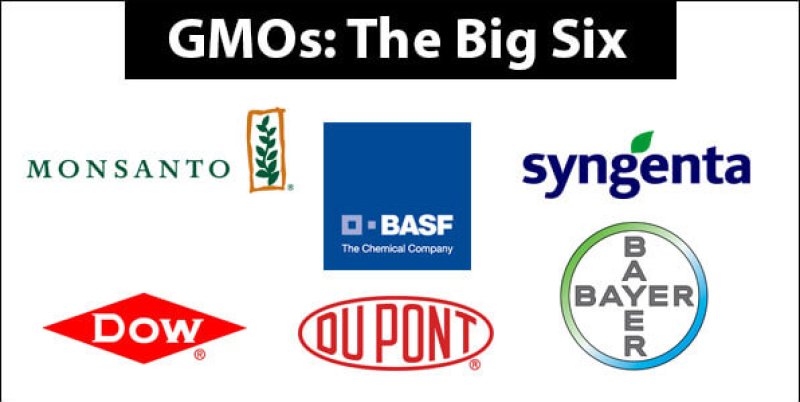What the next chapter in the evolution of agriculture has produced, is something akin to the pharmaceuticalization of food. Six multinational companies — Monsanto, DuPont, Bayer, BASF, Syngenta and the Dow Chemical Co. — control the rapidly growing GMO market. And, like their Big Pharma counterparts, these multibillion-dollar companies have been accused of bullying and/or lobbying anyone that gets in the way.
Monsanto, for one, has sued some 100 farmers for patent infringement, winning judgments against farmers found to have made use of the company’s genetically engineered (GE) seed without paying required royalties, according to a 2013 Reuters story.
Some GMO opponents are concerned the Big Six are positioning themselves to monopolize the world’s food supply. They worry that the companies’ vast wealth and power — like that wielded by the pharmaceutical industry — will lead to favoritism and laws designed to protect Big Ag over organic and conventional farmers.
These opponents have legitimate reasons to be concerned. In a political system where important decisions about regulating the food supply are largely made by power players rotating through the revolving door that separates government and the private sector, it’s difficult not to be cynical.
Read full, original article: Are GMOs Safe?































